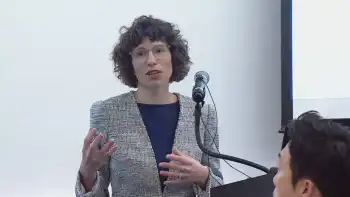Strict energy standards for TVs considered
By Associated Press
Substation Relay Protection Training
Our customized live online or in‑person group training can be delivered to your staff at your location.

- Live Online
- 12 hours Instructor-led
- Group Training Available
A rule before the California Energy Commission would impose the nation's first energy-efficiency requirements for flat-screen TVs, a mandatory standard that is expected to be copied by other states.
"The goal here is a simple one," Noah Horowitz, a senior scientist at the Natural Resources Defense Council, told commissioners at a recent hearing. "We want to ensure that every TV sold in California is an efficient one."
A vote on the standard could come as early as next month.
Some manufacturers argue a mandatory power standard would hamper innovation, limit consumer choice and hurt California electronics retailers.
Energy commissioners say the rule could play a key role in reducing electricity use as consumers buy larger TVs and put more of them in their homes. It could also help California meet its 2006 global warming law, which calls for the state to cut its greenhouse gases by 25 percent by 2020.
Watching TV accounts for about 10 percent of a home's electricity use and about 2 percent of California's total electricity usage. If left unchecked, the amount of electricity used by TVs is projected to rise by 8 percent a year.
"There is no dispute TVs do consume a large amount of electricity in California," commissioner Julia Levin said.
Under the rule, all TVs sold in California starting in 2013 would have to meet recently strengthened guidelines under the federal Energy Star program. Only one-quarter of the TVs on the market currently meet the standard.
An energy-efficient TV would save a household roughly $30 per year per TV set in electricity costs. If all 35 million TVs watched in the state were replaced with more efficient sets, Californians would save $8.1 billion over 10 years, according to the Energy Commission report.
Doug Johnson, senior director of technology policy at the Consumer Electronics Association, said the commission's cost savings were overly optimistic and relied on data that fails to show the advancements made in TVs in recent years.
He also argued that the standards would leave Californians with TVs that have poorer picture quality and fewer features than those sold elsewhere in the United States.
"Such regulation undercuts innovation, it does harm consumers," Johnson said. "Voluntary efforts are succeeding without regulation."
At least one TV maker said it could meet the standard. Ken Lowe, president of Vizio Inc., the largest seller of flat screens, said technology already on the market to adjust a screen's brightness was one way manufacturers could bring down the amount of power used by TV sets.
Representatives for several utilities said the standard would head off steep increases in home electricity use.
"The utilities firmly believe it's important not only to have a carrot, but a floor in order to bring up those products that are inefficient in the market," said Gary Fernstrom, a program engineer at Pacific Gas & Electric.











